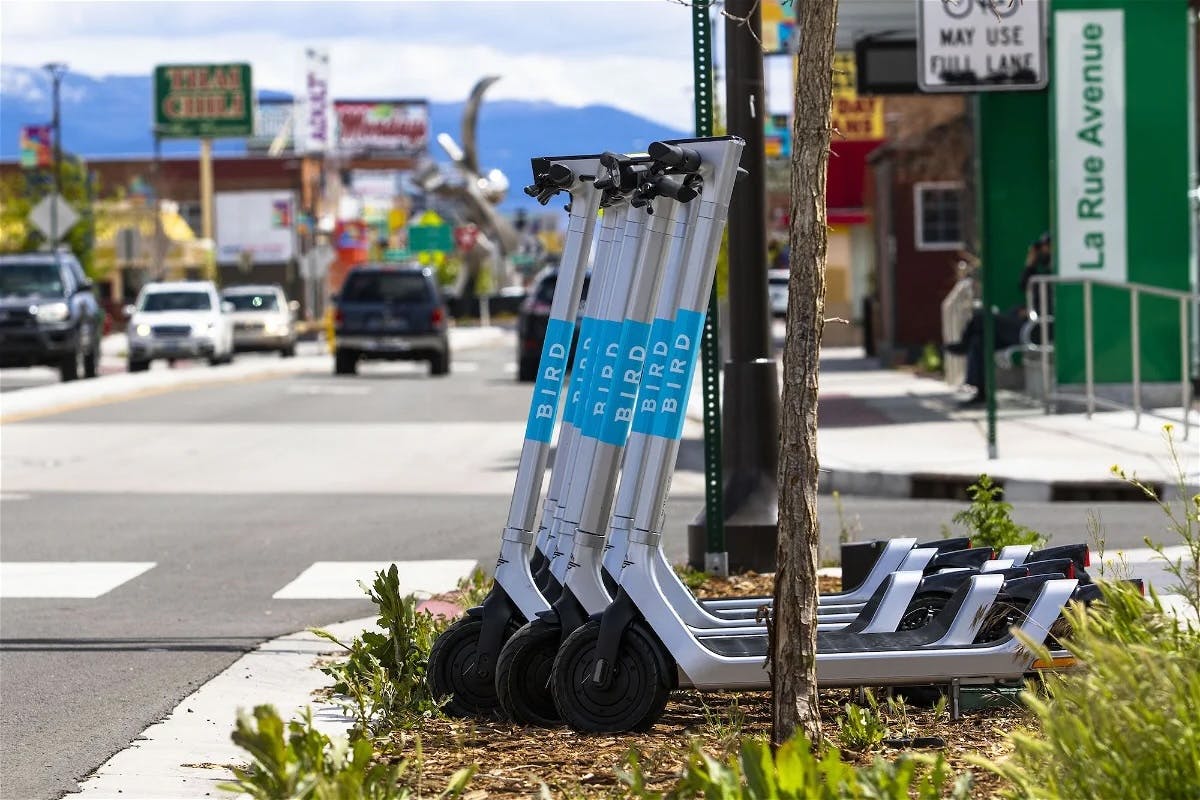Once-Hot Electric Scooter Companies in Free Fall as Consumers Resist, Idle Scooters Become ‘Dangerous Eyesores’
Paris has even banned electric scooters, with some U.S. municipalities considering similar measures.

Electric scooter start-ups, once thought to be the next big thing in urban transportation, are collapsing as consumer interest has failed to meet investors’ high expectations. The future of one of the largest electric scooter operators, Bird, is now up in the air after it filed for Chapter 11 bankruptcy in the United States Southern Bankruptcy District in Miami on Tuesday.
Bird, which has assets valued between $100 and $500 million, entered into the bankruptcy process with a prepackaged agreement with its creditors. As part of the restructuring, the company will undergo a sale of assets, with proceeds going to service creditors.
The bankruptcy petition is subject to approval from the court. In the meantime, the company has received $25 million of debtor financing from Apollo Global Management and Bird’s existing second-lien lenders to sustain the company’s operations through the bankruptcy process.
It’s a steep fall for the once high-flying scooter company that was a darling of Silicon Valley venture funds. Less than a year after Bird’s founding in 2017, the company raised close to $100 million at a $1 billion valuation with the help of Sequoia Capital. Over the years, though, Bird’s lofty vision of a new age, short-distance, supposedly eco-friendly means of transit failed to materialize. In its latest quarter, which ended September 30, the company posted net losses of nearly $21 million for the prior three months, with only $10 million of cash available. In 2021, the company lost close to $320 million, only recouping $67 of the $360 cost of a scooter.
Despite desperate attempts at growth, including through a merger with a competing operator, Bird struggled with ebbing demand. At its peak in the third quarter of 2019, the average Bird scooter recorded nearly three rides a day. But by the second quarter of 2023, the average Bird scooter was averaging only 1.2 daily rides.
Adding to its troubles, the company has faced increasing opposition from municipalities which have come to consider the scooters a danger when in use and an eyesore when sitting idle. Paris recently banned the devices, with similar measures being contemplated by municipalities across the United States.
Bird’s founding in Miami in 2017 launched the app-based electric scooter model, which has now been replicated by a plethora of competitors. The company distributes scooters onto sidewalks in more than 350 cities across the world. In a few seconds, users of an app are able to unlock the motorized devices, which can reach speeds approaching 20 miles an hour.
In recent years, however, the scooters have faced increasing backlash from the cities where they operate, where they are being assailed as dangerous polluters.
Bird’s demise comes as its competitors in North America face similar challenges. On Friday, another scooter company, Superpedestrian, announced it was shuttering its North American operations, tech outlet TechCrunch reported. Superpedestrian, which had raised $125 million 18 months ago, cited competitive challenges as it announced its decision to shutter operations across America and sell its European business.
Electric scooter companies such as Bird promised to provide a more sustainable mode of transportation than fossil-fuel-emitting vehicles. However, the short lifespan and intensive manufacturing process of the scooters meant that the devices produce more emissions over their lifespan than other forms of transportation such as buses, according to a study by researchers at North Carolina State University. The devices also became an eyesore as scooter companies lacked the infrastructure to remove the oft-broken scooters from city sidewalks. In one example, city officials in Lisbon were forced to charge scooter companies littering fines to handle the scourge of dead devices that had taken over public spaces.
Often seen precariously speeding on sidewalks, piloted by users not wearing protective gear, electric scooters have also courted controversy for being behind hundreds of injuries and deaths in America since their rise to popularity in 2016.
In 2021, the Consumer Product Safety Commission recorded 43,000 injuries caused by users of electric scooters. Almost half of the injuries occurred on rental e-scooters operated by companies such as Bird.

